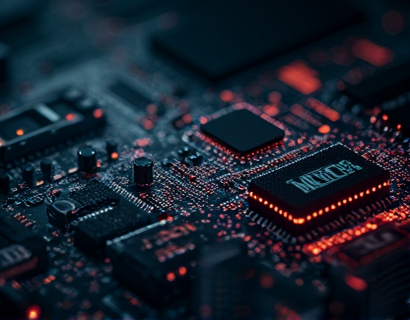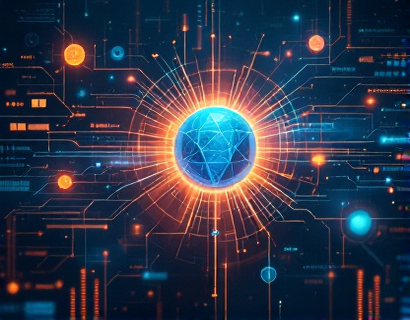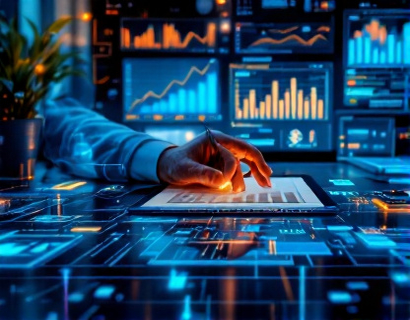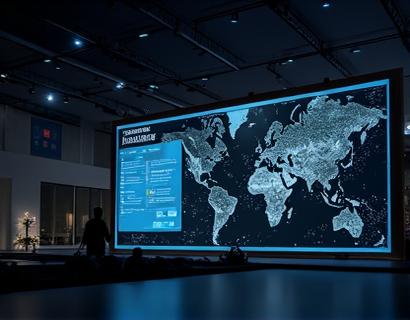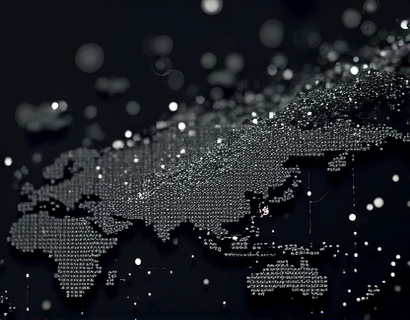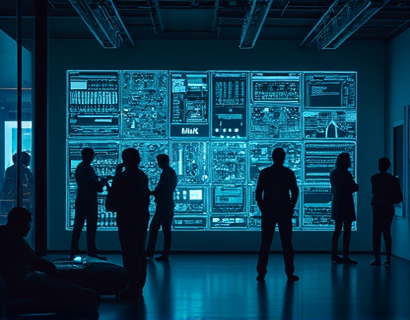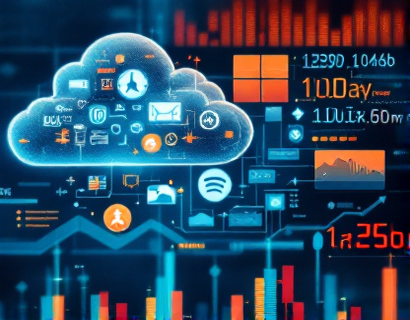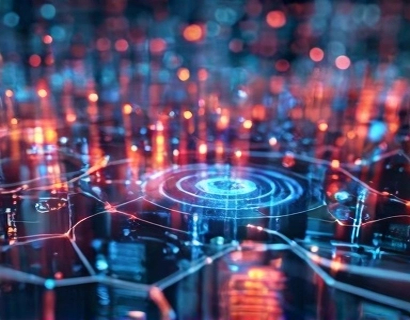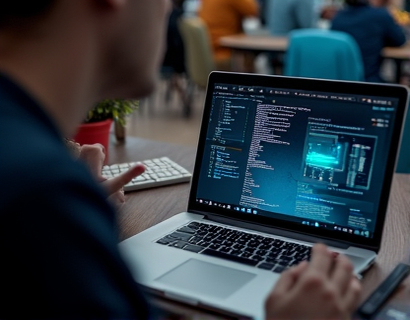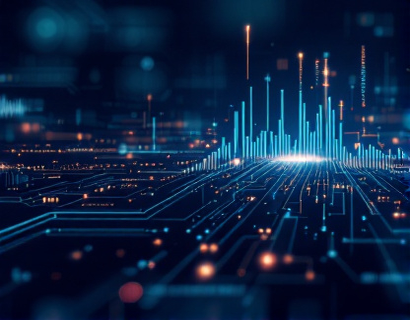Decentralized Productivity: Turbo-Charged with AI and Crypto Integration
The intersection of artificial intelligence and cryptocurrency is giving rise to a new era of decentralized productivity tools. These cutting-edge technologies are not just evolving independently but are merging to create advanced systems that significantly enhance efficiency and redefine user experience. This article delves into the transformative potential of integrating AI and crypto to revolutionize workflows, making them more intuitive, secure, and efficient. Whether you are a tech enthusiast, a productivity professional, or an early adopter of digital solutions, understanding these developments is crucial for navigating the future of digital innovation.
Understanding Decentralization in Productivity Tools
Decentralization, at its core, refers to the distribution of functions, processes, or activities away from a central authority. In the context of productivity tools, this means moving away from centralized servers and platforms controlled by a single entity to a more distributed network where data and processes are managed collectively by a network of nodes. This shift offers several advantages, including enhanced security, reduced downtime, and greater transparency.
Traditional productivity tools often rely on centralized servers, making them vulnerable to hacks, data breaches, and service outages. Decentralized tools, on the other hand, distribute data across a network, making it much harder for malicious actors to compromise the system. This distributed nature also ensures that the system remains operational even if some nodes fail, thus providing higher availability and reliability.
AI: The Brain Behind Decentralized Productivity
Artificial intelligence plays a pivotal role in enhancing the functionality and user experience of decentralized productivity tools. AI algorithms can process vast amounts of data, identify patterns, and make predictions, all of which can be leveraged to optimize workflows and automate repetitive tasks. In a decentralized environment, AI can facilitate smarter decision-making, personalized user experiences, and more efficient resource allocation.
For instance, AI-driven chatbots can provide real-time assistance and support within decentralized platforms, helping users navigate complex processes and troubleshoot issues without the need for human intervention. Machine learning models can analyze user behavior and preferences to offer tailored recommendations, thereby enhancing productivity and user satisfaction.
Enhancing Security with Cryptography
Security is a paramount concern in any digital ecosystem, and the integration of cryptocurrency technology brings a robust layer of security to decentralized productivity tools. Cryptography, the practice of securing communication and data through mathematical algorithms, ensures that data transmitted within the network remains confidential and tamper-proof.
Blockchain, the underlying technology of cryptocurrency, provides a decentralized ledger that records all transactions in a secure and immutable manner. This means that once data is recorded, it cannot be altered or deleted, ensuring the integrity of the information. Smart contracts, self-executing contracts with the terms directly written into code, further automate and secure transactions, reducing the need for intermediaries and minimizing the risk of fraud.
Decentralized Storage Solutions
One of the key challenges in decentralized systems is data storage. Centralized storage solutions are prone to single points of failure and data loss. Decentralized storage solutions, such as IPFS (InterPlanetary File System), address these issues by distributing data across multiple nodes in the network. This not only enhances security but also improves scalability and speed.
AI can optimize decentralized storage by intelligently managing data distribution and redundancy. Machine learning algorithms can predict data access patterns and optimize storage allocation, ensuring that frequently accessed data is readily available while less critical data is stored more efficiently. This intelligent management reduces latency and improves overall system performance.
User Experience: Personalization and Intuitiveness
The fusion of AI and decentralization significantly enhances user experience by making productivity tools more personalized and intuitive. AI-driven interfaces can adapt to individual user preferences and work styles, providing a customized experience that evolves over time. For example, AI can learn a user's typical tasks and work patterns, automatically suggesting tools and workflows that align with their needs.
Decentralized platforms can also benefit from decentralized identity management systems, allowing users to control their digital identities and permissions without relying on centralized authorities. This not only enhances privacy but also simplifies the onboarding process, making it easier for users to access and utilize various tools and services.
Collaboration and Transparency
Collaboration is a critical aspect of productivity, and decentralized tools powered by AI and crypto offer unprecedented levels of transparency and cooperation. Blockchain-based collaboration platforms ensure that all participants have access to the same version of the truth, reducing conflicts and miscommunications. AI can further enhance collaboration by providing real-time insights and analytics, helping teams make data-driven decisions and track progress efficiently.
Smart contracts can automate workflows and ensure that tasks are completed as agreed upon, with penalties or rewards enforced automatically. This not only streamlines processes but also builds trust among collaborators, as all actions are transparently recorded and verifiable.
Scalability and Interoperability
Scalability is a significant challenge for decentralized systems, but the integration of AI and crypto is helping to overcome these hurdles. AI can optimize network resources and manage load balancing, ensuring that the system can handle increasing amounts of data and users without degradation in performance. Machine learning models can predict and mitigate potential bottlenecks, maintaining smooth operations even during peak usage times.
Interoperability is another crucial aspect, as it allows different decentralized platforms and tools to work seamlessly together. AI can facilitate the development of standardized protocols and interfaces, enabling different systems to communicate and share data effectively. This interoperability is essential for creating a cohesive ecosystem where users can leverage a wide range of tools and services without compatibility issues.
Case Studies: Real-World Applications
Several real-world applications demonstrate the potential of integrating AI and crypto in decentralized productivity tools. For instance, a decentralized project management platform uses AI to optimize task allocation and resource management, while leveraging blockchain for secure and transparent tracking of project milestones. Users report higher efficiency and better collaboration, with all data being immutable and accessible to all team members.
Another example is a decentralized content creation and monetization platform that uses AI to personalize content recommendations and ensure fair compensation for creators. Cryptocurrency transactions are recorded on a blockchain, providing transparency and security in the distribution of earnings. This not only enhances the user experience but also empowers creators by giving them more control over their work and revenue streams.
Future Prospects: The Path Ahead
The future of decentralized productivity tools is promising, with ongoing advancements in AI and cryptocurrency set to unlock even more possibilities. As AI algorithms become more sophisticated, we can expect more intuitive and context-aware tools that further enhance productivity. The integration of edge computing and AI will enable real-time data processing and decision-making, reducing latency and improving responsiveness.
Cryptocurrency technology is also evolving, with new consensus mechanisms and scalability solutions emerging to address current limitations. The development of layer 2 solutions and cross-chain interoperability protocols will make decentralized systems more efficient and user-friendly. The combination of these advancements will lead to more robust, secure, and seamless decentralized productivity tools.
Moreover, the growing adoption of Web3 technologies, which build on blockchain and decentralized principles, will further integrate AI and crypto into everyday digital interactions. As more users and businesses embrace these technologies, the ecosystem will continue to grow, fostering innovation and driving the next wave of digital transformation.
In conclusion, the fusion of AI and cryptocurrency is revolutionizing productivity tools by creating decentralized, secure, and intelligent systems. These advancements not only enhance efficiency and user experience but also pave the way for a more transparent and collaborative digital future. As we continue to explore and harness the potential of these technologies, the possibilities for transforming how we work and interact with technology are endless.



